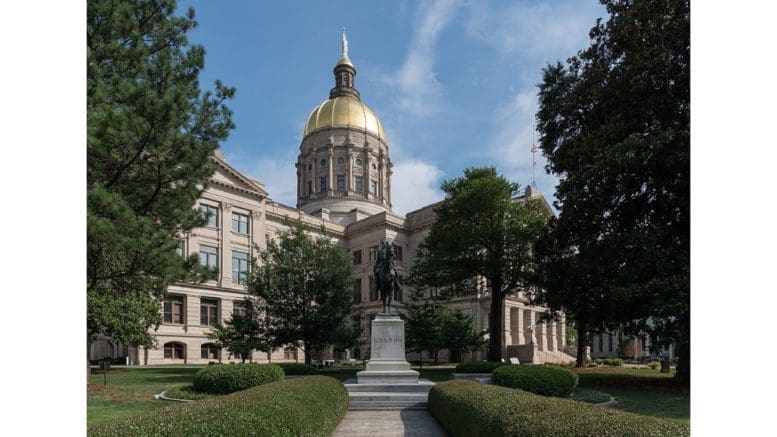by Stanley Dunlap, Georgia Recorder [This article first appeared in the Georgia Recorder, republished with permission]
March 14, 2023
A Georgia House panel Tuesday advanced legislation that prohibits local government officials from directly receiving donations from outside organizations to administer elections after accusations millions of dollars were unfairly given to Democratic-leaning counties during the 2020 election cycle.
Senate Bill 222 was approved by the House State and Local Government Subcommittee on Tuesday with the support of Republican legislators following a lengthy debate over creating new criminal penalties and forcing a county to return donations it received from a private organization to help pay for election administration.
The GOP-controlled state Senate approved the updated donation restrictions earlier this month along party lines, so if the House also approves it can advance to the governor’s desk.
If the bill passes, all private donations would have to be funneled to local election administrations through the secretary of state’s office and the State Election Board.
The bill also makes it a felony carrying up to a year in jail and a $10,000 fine if someone violates the law by applying for private grants or receiving donations for election operations.
Democratic Rep. Phil Olaleye was unable to get enough votes to reduce punishment for the offense a misdemeanor with no jail time and a fine of $1,000.
The legislation also requires local governments to return any money they receive from non-governmental organizations that came in since the passage of the GOP’s 2021 election law overhaul that attempted to limit outside funding after millions poured into Georgia elections in 2020 to deal with the effects of the COVID-19 pandemic.
A county election official questioned the legality of retroactively requiring an election office like DeKalb County’s to return the $2 million it received this year from a nonprofit. The contribution was part of a five-year, $80 million collaboration with election officials and other experts across the nation.
Dele Lowman Smith, chairwoman of the DeKalb County Board of Registration & Elections, said that the county follows state law as it does for any type of grant that is then used for public purposes.
“All this does is penalize already harassed and underpaid, or in my case unpaid election officials, and volunteers,” she said. “I have to admit being offended by being told that by seeking to serve the voters of our county, we could risk being sent to prison when there are elected officials right now who actively sought to overturn the results of an election, who were not facing one single charge.”
A lawyer for the subcommittee said Tuesday that the state could be in a legal tangle if it tries to require local governments to return funds that don’t explicitly violate the 2021 election law. County commissions could receive grants and other donations related to elections and then distribute the funding for election administration.
“You’re about to pass a bill that we know will be legally challenged, which in my humble opinion is a waste of taxpayer dollars,” said Rep. Shea Roberts, a Sandy Springs Democrat.
Democrats criticized Republicans’ 2021 election law changes for new rules they say burden local election officials with unfunded mandates.
Republicans complained Tuesday that liberal-leaning benefactors and organizations are funding metro-Atlanta counties and other Georgia communities with a history of voting for Democrats.
Members election monitoring group VoterGa referenced a report that found that 94% of donations made by nonprofit Center for Tech and Civic Life during the 2020 election cycle went to Democratic-leaning counties in Georgia, where a significant increase in turnout contributed to Democrat Joe Biden narrowly defeating former President Donald Trump in the presidential election.
Sylvania Republican Sen. Max Burns, the donation legislation sponsor, said his bill intends to close a loophole in which many counties in Georgia were not getting an equal chance to bring in donations.
His bill still allows people to provide election services without compensation for goods valued less than $200 and allows for private donation of polling sites.
“In a nutshell, this bill is intended to ensure that Georgia elections are funded from lawfully appropriated, state, or local funds,” Burns said.
“What I’m suggesting is that certain funding sources only provided resources to certain counties,” he said.
Georgia Recorder is part of States Newsroom, a network of news bureaus supported by grants and a coalition of donors as a 501c(3) public charity. Georgia Recorder maintains editorial independence. Contact Editor John McCosh for questions: info@georgiarecorder.com. Follow Georgia Recorder on Facebook and Twitter.
